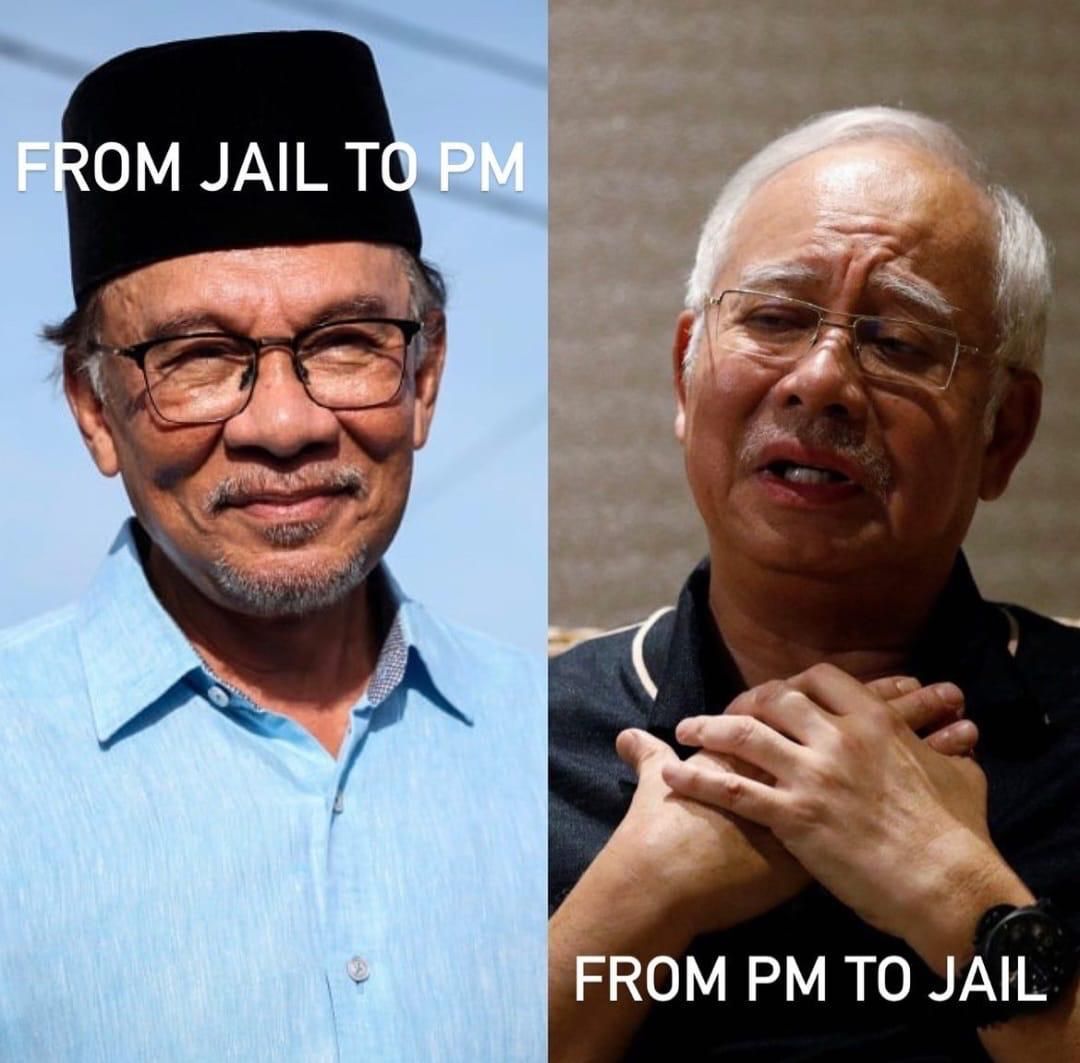Mr Anwar Ibrahim, former Deputy Prime Minister has finally been sworn in as Malaysia’s Prime Minister. Mr Ibrahim is what my former client, Mr Vinod Sekhar, called a good guy. Mr Ibrahim was once a rising star in Dr Mahathir’s government and was seen as a potential successor.
However, when the Asian Financial Crisis hit, Dr Mahathir turned on him and sent him to jail on trumped-up charges of sodomy (forbidden in Islam – Mr Ibrahim is known as a devout Muslim). Mr Anwar Ibrahim spent the next 30 years of his life moving in and out of jail, fighting legal challenges as well as fighting political battles.

While it might be a stretch to call this Malaysia’s “Mandela” moment, the fact that a former political dissident can get to the top job by sheer persistence is encouraging. It is a case of, it doesn’t matter who you are as long as you work hard.

Then, there’s the unsung hero of this situation. In this case, it is the King, Sultan Abdullah of Pahang, who brought the politicians together to work out a unity government. Malaysia’s King, like his British counterpart, is a constitutional one and his powers to do things are limited. Yet, when there was a hung parliament, he managed to gather the politicians together to get them to form a government.
Something miraculous happened in Malaysia
I’m Singaporean and so it becomes a little challenging to admit it, but something miraculous happened in Malaysia. It’s challenging to admit because generations of Singaporeans have grown up with the notion that we’re simply better than our cousins across the Causeway.
We’re like the pretty girl that can walk into a room and, without trying, gets every guy turning his head just to get a glance at her. Malaysia, by contrast, is our elder sister, who despite having lots of advantages, never seems quite able to get guys interested in her and when we talk to our cousins in Malaysia, we tend to be like that pretty girl who felt sorry enough for her older sister by arranging a date with one of our rejected suitors.
Singapore politics is wonderfully boring
It’s especially true when it comes to the topic of politics and law. Say what you like about the Singapore government, but Singapore politics is wonderfully boring. You know the results of every election before it even happens and as former Deputy Prime Minister Teo Chee Hean once said, “In Singapore, what you see is what you get.”
Malaysian politics, by contrast, is colourful.
Malaysian politics, by contrast, is colourful. For over 50 years, the same party won the election, and politics was dominated by prominent characters in that party. Corruption, which is officially “non-existent” in Singapore is given in Malaysia and whilst Singapore made it a point to know that it was “regardless of race or religion,” Malaysia has proudly favoured one ethnic group over the rest.
However, this has been a year since the older sister showed the younger sister a thing or two. First, Malaysia saw to it that its former Prime Minister Najib Razak will go to jail for plundering the country. Mr Najib was the enabler of the now infamous 1MDB scandal and he was probably the only world leader who tried to explain that the US$700 million in his personal bank account was a donation from another nation. The jailing of the once untouchable Mr Najib showed that the rule of law was working. Even the most powerful were being held to account.
Then, there was the fact that Dr Mahathir, Malaysia’s longest-serving Prime Minister was voted out and lost his deposit. The good doctor, who is 97, has been a force in Malaysian politics for over three decades. Dr Mahathir is credited with bringing up the Malaysian economy but he has been accused of being the architect of the system of patronage that was abused by Mr Najib. The Malaysian voters had grown tired of the good doctor and showed him the exit by the most effective means. His electoral defeat showed that the voters were willing to get rid of people regardless of who they were.
Sure, Malaysian politics has been colourful. However, the system has been toughened and institutions like the courts and parliament and the monarchy have been tested. One has to ask, would we, on this side of the Causeway be able to pass the tests that have afflicted the Malaysian system?
A version of this article first appeared at beautifullyincoherent.blogspot.com

